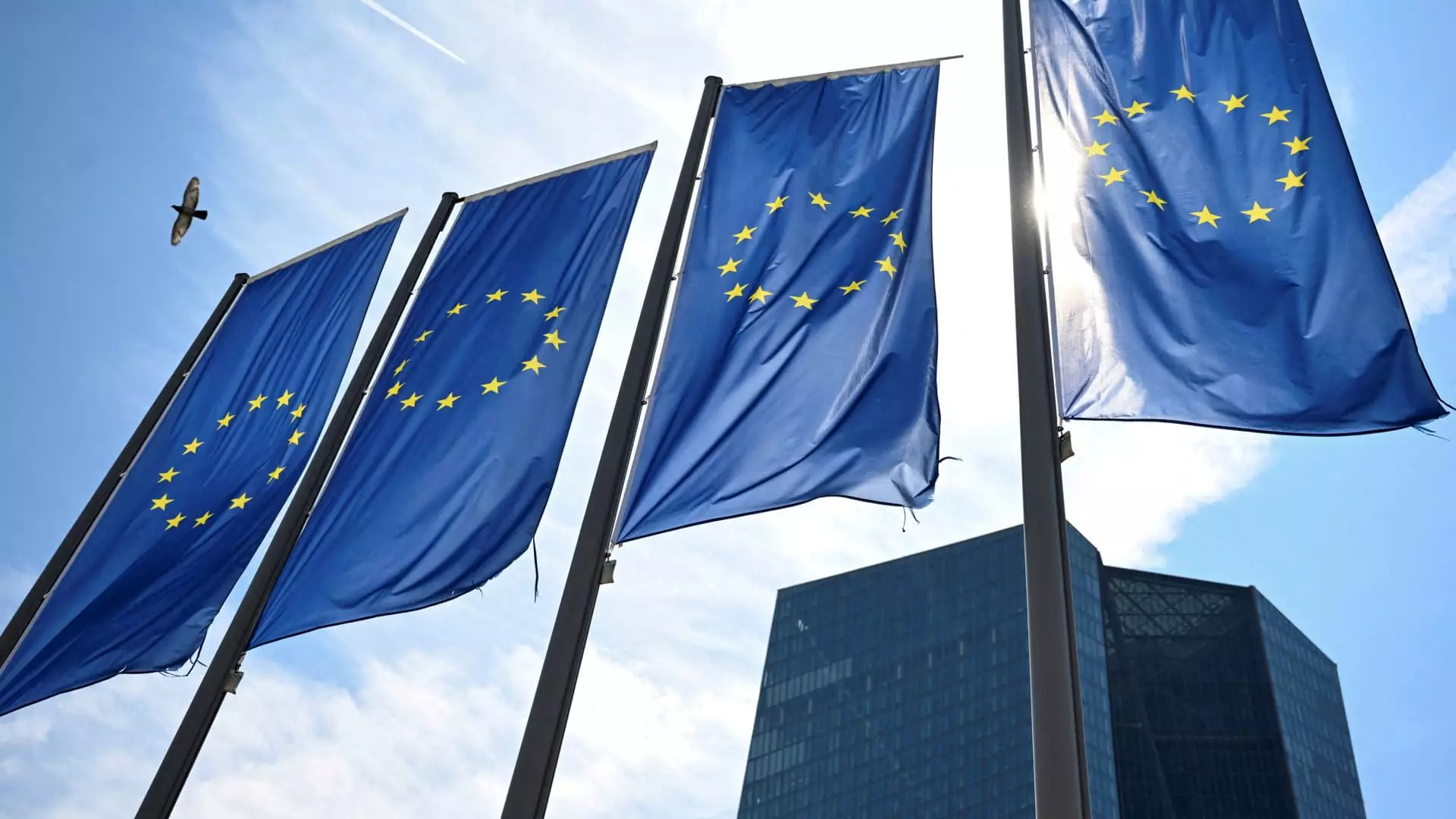As European leaders convene to strategize on burgeoning defense investments, the specter of U.S. tariffs looms ominously over the summit. With U.S. President Donald Trump recently announcing impending tariffs on key goods from Mexico, Canada, and China, the anxiety rippling through the EU underscores the fragility of international commerce in the current geopolitical climate. Although European exports have thus far enjoyed an exemption, the uncertainty regarding Trump’s next moves raises alarm bells — particularly for an economic alliance that heavily relies on transatlantic trade.
The dynamics of trade between the United States and European Union have always been complex, often influenced by political rhetoric and economic policies. Trump’s recent declaration that the EU has “taken advantage” of the U.S. resonates sharply, particularly with statistics showcasing a significant trade deficit favoring the EU. Such statements and the anticipated tariffs have placed the bloc in a precarious position, prompting a re-evaluation of both strategy and priorities.
In light of these developments, EU leaders are acutely aware of the implications tariffs could have on their economies. Reports suggest that the EU is the largest export market for the U.S., yet it also imports significant quantities of oil and natural gas from American sources. This duality creates a web of interdependence that the EU cannot easily forsake, but the rising tensions could jeopardize this balance.
An EU official, who opted for anonymity to avoid inflaming diplomatic sensitivities, hinted at looming discussions surrounding tariffs. While the official suggested that a full discourse on tariffs might not take place, the very mention of tariffs reflects the underlying tension and urgency amongst EU leaders. The prevailing sentiment within the EU is one of cautious anticipation, bracing for possible retaliatory measures while simultaneously pondering strategies to foster economic resilience.
The overarching concern for EU officials is not merely the economic impact of U.S. tariffs; it encompasses a broader inquiry into how to sustain economic stability within a potentially hostile trading environment. EU leaders have articulated a commitment to counteracting any unfair tariffs, with the European Commission emphasizing that trade should thrive on low tariffs and an equitable system.
The notion of a “firm response” to arbitrarily imposed tariffs signals an intent for collective action among EU member states. However, the question arises: can the EU present a united front while navigating complex national interests? Each member state has unique ties and dependencies that may complicate a cohesive response. Furthermore, the challenge will be to maintain economic growth amidst protectionist measures, chiefly when energy purchases comprise a significant part of the strategy to mitigate trade confrontation.
One strategic avenue for the EU is to increase energy imports from the U.S., particularly in terms of liquefied natural gas (LNG). By doing so, the EU aims not only to bolster energy security but also to demonstrate a willingness to engage constructively with the U.S. However, this approach requires a delicate balancing act; too much concession could lead to the perception of weakness, while resistance may escalate tensions further.
A senior diplomat’s comments on the difficulty of avoiding escalation highlight the complexity of these negotiations. Implementing robust trade policies while fostering economic growth will demand innovative thinking and strategic diplomacy. Potential avenues for dialogue must be explored, wherein Europe leverages its collective bargaining power while maintaining its principles of fair trade.
As European leaders gather amid the threats of tariffs and trade war specters, the stakes have never been higher. The EU must navigate a path fraught with uncertainty, balancing the need for defense investments against the backdrop of a potential trade rift with the U.S. In this climate of intimidation and negotiation, wary diplomacy and astute economic strategies will be pivotal in shaping the EU’s future relations with the U.S. and the global market. The outcome of these deliberations may very well define a new chapter in transatlantic cooperation—or conflict.


Leave a Reply